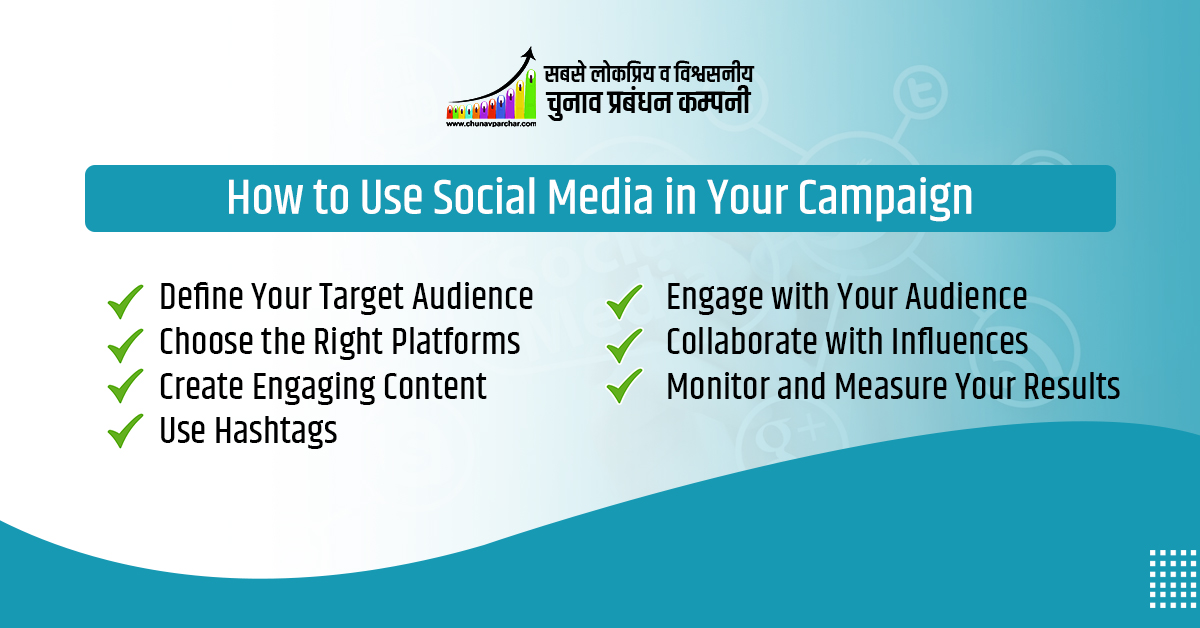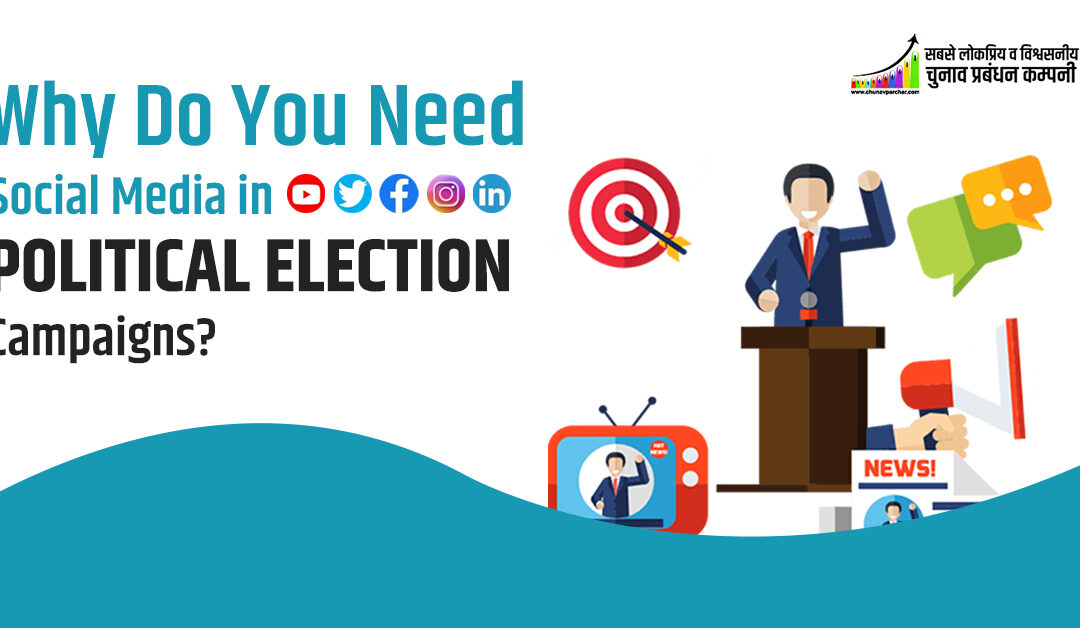Introdction
Social media has become an integral part of modern political election campaigns. With the rise of platforms such as Facebook, Twitter, and Instagram, political candidates now have a powerful tool to reach out to voters and connect with them on a more personal level. Social media offers several advantages over traditional methods of campaigning, including the ability to reach a larger audience, target specific demographics, and create more engaging content.
In this context, it is important to understand why social media is necessary for political campaigns and how it has transformed the way politicians engage with voters. This essay explores the key reasons why social media is essential in political election campaigns and how it has impacted the political landscape in recent years.
What is Social Media?
Social media refers to online platforms and technologies that allow individuals and organizations to create, share, and exchange information, ideas, and content in a virtual community. Social media platforms are typically web-based and include sites like Facebook, Twitter, LinkedIn, Instagram, TikTok, and YouTube. These platforms enable users to communicate and interact with others, build networks, and share content such as photos, videos, and text.
As for your company name, “Chunav Parchar,” it seems to be a Hindi phrase that translates to “election propaganda” in English. If your company specializes in Political Campaign Management or provides election-related services, social media can be an effective tool to reach and engage with voters. Many political campaigns use social media platforms to promote their candidates, share their views, and connect with supporters.
What are the Benefits of Social Media in Political Election Campaigns?
Social media has become an integral part of political election Campaigns in recent years. There are several benefits that social media provides for political candidates and parties during the election season:
- Increased Reach: Social media platforms have a massive user base, and this can help political candidates and parties reach a much wider audience than traditional forms of campaigning. With the ability to share content quickly and easily, social media can help candidates to reach a large number of people in a short amount of time.
- Cost-effective: Compared to traditional advertising channels like television, radio or print media, social media is a cost-effective way for political candidates and parties to reach their target audience. Social media advertising campaigns can be highly targeted, which makes them more efficient and cost-effective.
- Engagement with Voters: Social media platforms allow political candidates and parties to engage directly with voters, responding to their questions and concerns, and providing them with information about their policies and positions. This can help to build trust and credibility with voters, which is essential for a successful election campaign.
- Real-time feedback: Social media allows political candidates and parties to receive real-time feedback from their followers and supporters. This can help them to adjust their messaging and tactics on the fly, based on what is resonating with their audience.
- Data Collection: Social media platforms provide valuable data and insights about voters, including their demographics, interests, and behaviors. This information can be used to create more targeted and effective campaign messaging and tactics.
How Can Social Media Help You Win?
Winning can mean different things to different people, so it depends on what you mean by “win”. However, in general, social media campaign can help you achieve your goals in various ways, including:
- Building a Personal Brand: Social media can help you establish and promote your personal brand. You can use social media platforms like LinkedIn, Twitter, and Instagram to showcase your expertise and share your knowledge with others.
- Growing Your Network: Social media platforms allow you to connect with like-minded people from all over the world. By networking on social media, you can expand your reach and make new connections that can help you achieve your goals.
- Promoting Your Products or Services: If you have a business or offer services, social media can be an excellent marketing tool. You can use platforms like Facebook, Instagram, and Twitter to promote your products or services, reach new customers, and drive sales.
- Building Your Reputation: Social media can help you establish yourself as an expert in your field. By sharing insightful and helpful content, you can build a reputation as a thought leader and gain the respect of your peers and followers.
- Crowdsourcing ideas: social media campaign can be a great way to gather ideas and feedback from your followers. You can use platforms like Twitter and Instagram to ask for input on a new project, product, or service, and get valuable feedback from your audience.
How to Use Social Media in Your Campaign

social media campaign is a powerful tool for reaching and engaging with a large audience, making it an essential component of many campaigns. Here are some tips on how to use social media effectively in your campaign:
- Define Your Target Audience: Before you start using social media for your campaign, it’s important to define your target audience. This will help you create content that resonates with them and choose the right social media channels to use.
- Choose the Right Platforms: Different social media platforms are better suited to different types of content and audiences. For example, Instagram and TikTok are great for visual content, while Twitter is ideal for short-form text updates. Facebook is a good all-around platform that can be used for a variety of content types.
- Create Engaging Content: To get your target audience to engage with your campaign on social media, you need to create content that’s interesting and relevant to them. This could include images, videos, infographics, and written posts.
- Use Hashtags: Hashtags are a great way to make your content more discoverable on social media. Choose relevant hashtags that people in your target audience are likely to search for.
- Engage with Your Audience: social media campaign is a two-way conversation, so it’s important to engage with your audience. Respond to comments, answer questions, and participate in discussions.
- Collaborate with Influences: Influencer marketing can be a powerful way to reach a wider audience on social media campaign. Find influencers in your niche who align with your campaign and collaborate with them to promote your message.
- Monitor and Measure Your Results: Use analytics tools to track your social media metrics, such as engagement, reach, and click-through rates. This will help you understand what’s working and what’s not, so you can adjust your strategy as needed.
Tips for a Successful Social Media Campaign
Running a successful social media campaign requires a well-planned and executed strategy. Here are some tips to help you create and execute a successful social media campaign:
- Define Your Goals: Before starting any social media campaign, you need to define your goals. What do you want to achieve? More followers, increased engagement, website traffic, or higher conversions? Knowing your goals will help you design a campaign that is specific, measurable, achievable, relevant, and time-bound (SMART).
- Know Your Audience: Understanding your audience is crucial to creating a successful social media campaign. You need to know their demographics, interests, behaviors, and pain points. This knowledge will help you create content that resonates with them and increases engagement.
- Choose the Right Platforms: Different social media platforms have different demographics, features, and best practices. You need to choose the right platform that aligns with your goals and audience. For example, if you’re targeting young adults, Instagram and TikTok might be the best platforms, but if you’re targeting professionals, LinkedIn might be the way to go.
- Create High-Quality Content: Your content is the backbone of your social media campaign. It needs to be high-quality, relevant, engaging, and visually appealing. You can use different formats such as images, videos, infographics, stories, and live streams to convey your message.
- Use Hashtags and Keywords: Hashtags and keywords can help your content get discovered by users who are searching for specific topics or trends. Use relevant and popular hashtags and keywords in your posts to increase visibility and engagement.
- Engage with Your Audience: Social media is a two-way conversation. You need to engage with your audience by responding to comments, direct messages, and mentions. This will help build a relationship with your audience and increase loyalty.
- Analyze Your Results: To know if your social media campaign is successful, you need to track and analyze your results. Use social media analytics tools to measure your reach, engagement, clicks, conversions, and other metrics. Use this data to refine your strategy and improve your future campaigns.
Conclusion
In conclusion, social media has become an essential tool for political campaigns to reach out to potential voters and engage with the electorate. With the increasing number of people using social media platforms, political candidates have the opportunity to connect with millions of voters in a matter of seconds. Social media has transformed the way political campaigns are conducted, allowing candidates to connect with voters in real-time and on a more personal level.
Moreover, social media provides political campaigns with the ability to target specific demographics and tailor their message to individual voters. This targeted approach allows political candidates to focus their efforts on groups that are most likely to vote for them, increasing their chances of success in the election.
Therefore, in today’s digital age, it is imperative for political campaigns to leverage the power of social media to reach out to potential voters and connect with the electorate. Social media provides a platform for political candidates to engage with voters and communicate their message effectively, ultimately leading to greater success in elections.

